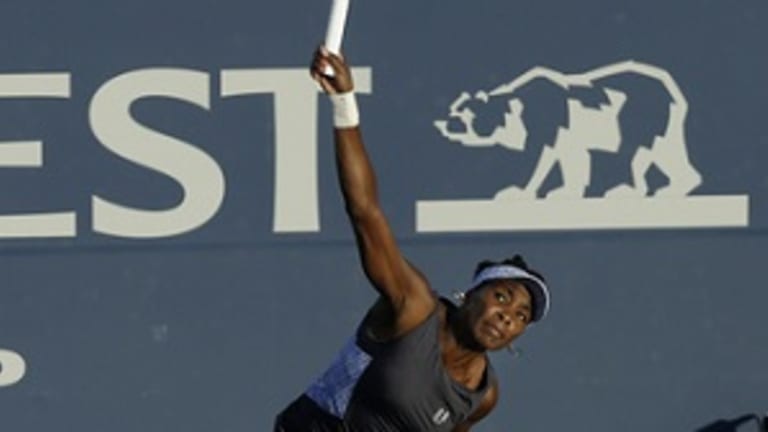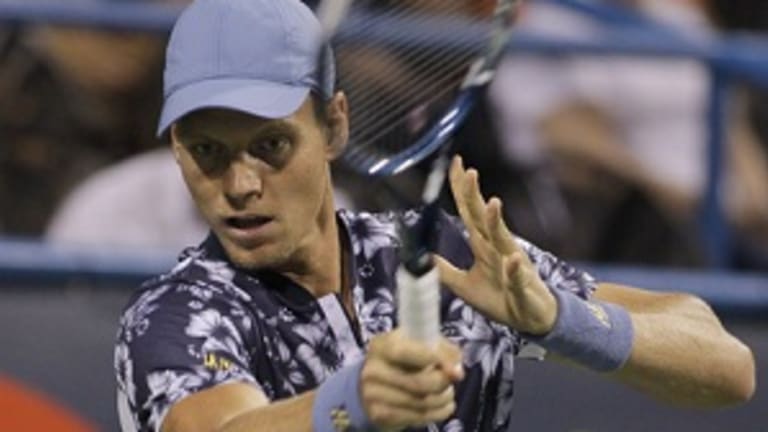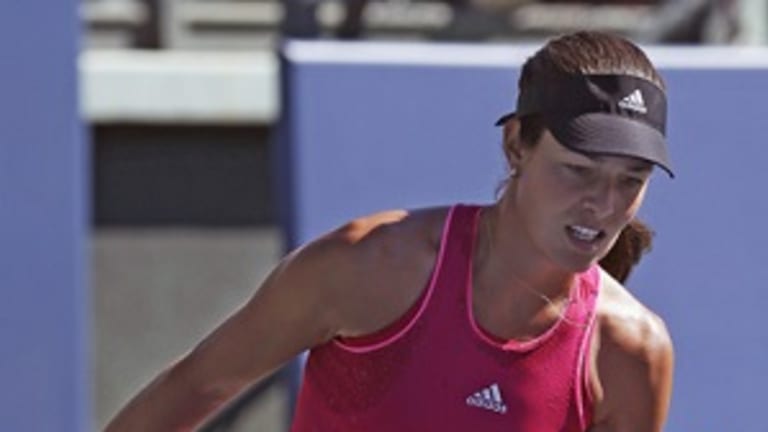Speaking of match-ups, I think it’s safe to say that Vasek Pospisil, a Canadian of Czech descent, likes playing the man from his mother country, Tomas Berdych. In fact, Berdych seems to be his personal catalyst, the man who shows him how good he can be. Last summer, in Montreal, Pospisil beat Berdych during his first and so far only run to a Masters semifinal. This time, in D.C., Pospisil displayed some of his best, most complete tennis since that breakthrough week a year ago. As with Venus against Vika, there’s something about Berdych’s flat ground strokes that grooves the ball perfectly into Pospisil’s stroke zone. The Canadian jumped to a 3-0 lead and rolled to a 6-2, 6-4 win. From his serve to his flick defensive forehand, he had everything clicking, and he was more than capable of trading lasers with one of the tour’s biggest hitters.
“His game is there, so he just needs to find it also in other matches,” Berdych said in a vaguely Serena-esque statement afterward. “It’s not the case when he plays me.”
“That was definitely not my best tonight," Berdych also said. "It’s something where I just need to go on.”
Should Berdych and his team be more concerned than that? He lost badly to two lower-ranked players, Ernests Gulbis and Marin Cilic, at the French Open and Wimbledon. And against Pospisil, Berdych was even worse—I’ve never seen him so off-balance.
Is this a temporary dip for the Birdman, who will be 29 next month, or the beginning of a longer descent?


